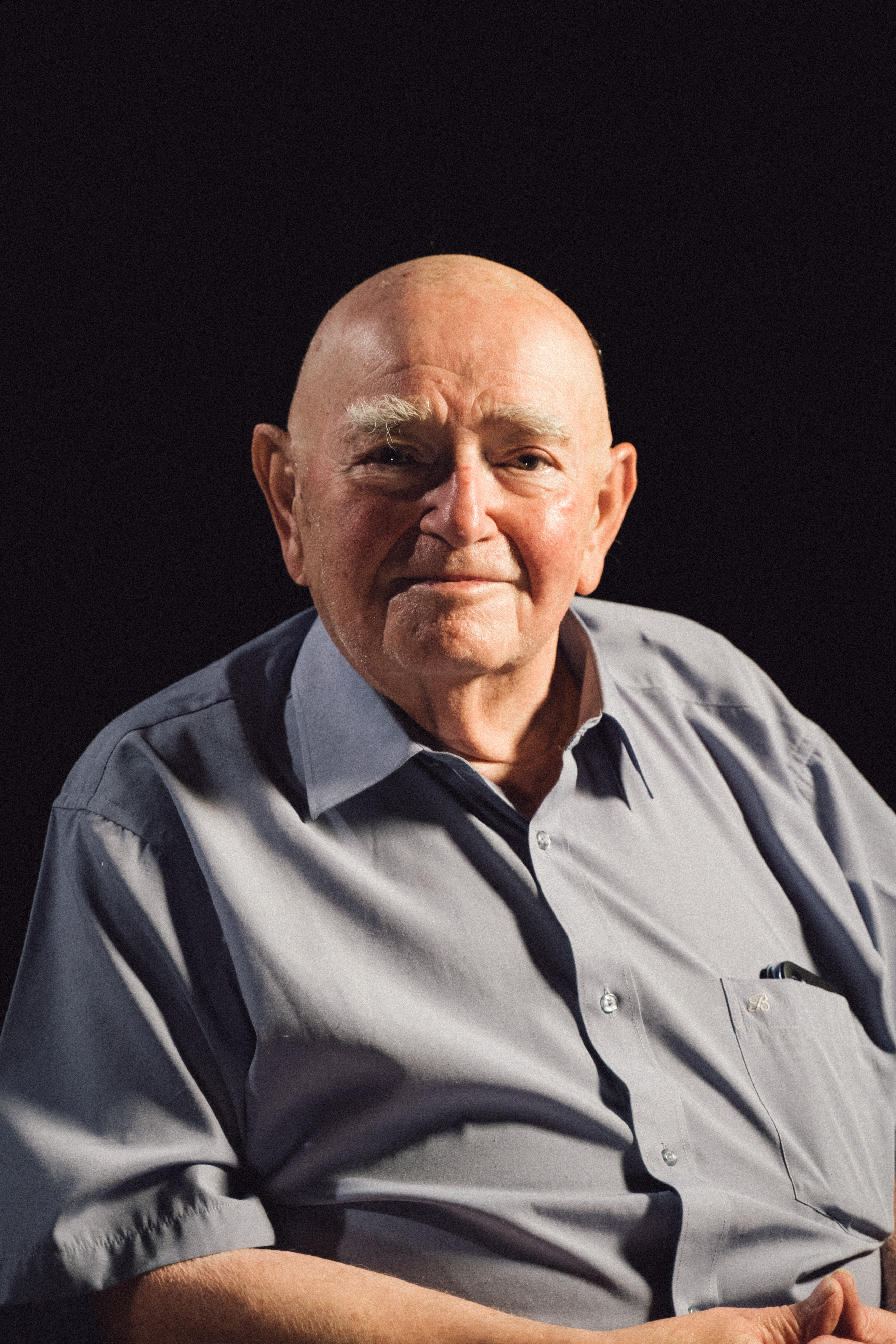These are horrible memories, horrible events that happened at that time. I hope that this will not happen again

Stáhnout obrázek
Alexander Stín was born on October 23, 1939 in Budapest to parents of Jewish origin. At the time of the anti-Jewish persecutions, the family lived in Nové Zámky, which became part of Hungary after the Vienna Arbitration. After being interned in the ghetto in Nové Zámky, he and his mother were taken to a hospital in Budapest, where his younger brother Peter was born in June 1944, but he did not live to see the end of the war - he died of malnutrition shortly before liberation. He spent the rest of the war in Budapest, first in a sheltered apartment, then in the ghetto, where he witnessed executions of Jews, raids and shortages of food and water. After the liberation, they lived in his grandparents‘ house in Budapest, later returning to Nové Zámky, where Alexander entered a folk school. His parents restored the butcher‘s shop, which had been Aryanized during the war, but after the coup was again nationalized along with their house. He attended the secondary school of chemistry in Banská Štiavnica. After graduation he worked in an industrial complex. However, in October he had to enlist for military service in Jindřichův Hradec and got up to the position of a company sergeant. After his compulsory military service ended in the 1960s, which were marked by a political lull, he started working at Elektrosvit, where he supplemented his education by studying to become a certified technician without an engineering degree. In the times of normalisation in the 1970s, he started to work in the physical education union in Nové Zámky. After disagreements with the chief secretary of the Central Committee of the Communist Party of Czechoslovakia, Valent, at the Spartakiada in 1985, he was transferred to the regional committee in Bratislava, and after 1989 he joined the Central Committee of the Slovak Union of Physical Education and Culture (SZTK). He later resigned from this position due to suspicions that funds were being unfairly distributed among the various sports clubs. He should have been awarded a plaque at the celebration of the 10th anniversary of the SZTK, but he refused to accept it.

